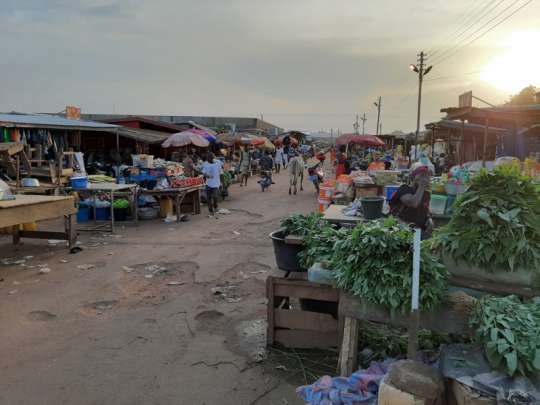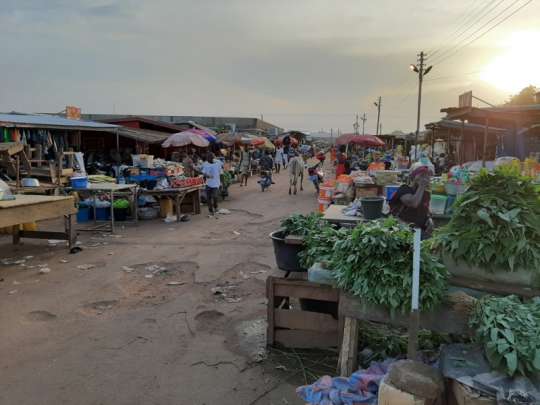
Market women in Bolgatanga have launched appeals to authorities to reclaim approximately 1,000 locked stores and sheds at the Old Market that have remained unused for years despite being allocated to individuals.
The traders are calling on the Bolgatanga Municipal Assembly to immediately reallocate these facilities, arguing that the move would provide much needed economic opportunities and address chronic space constraints in the market.
Since the last quarter of the year, frustration has mounted among active traders who conduct business under harsh conditions while valuable market infrastructure sits idle behind padlocks. The women contend that those who secured allocations years ago have neither utilized the spaces nor relinquished them for others to use.
The situation has created what traders describe as a paradox: a market struggling with inadequate trading space while hundreds of allocated stores remain perpetually locked. Many of the women currently trade in open areas exposed to sun and rain, lacking basic shelter that the unused facilities could provide.
The appeal comes at a time when market allocation disputes have become increasingly common across Ghana. In Akyem Oda, the Central Market experienced similar controversies that delayed stall allocation for months after reconstruction was completed in November 2024. Court injunctions and disagreements over management agreements complicated what should have been a straightforward distribution process.
Bolgatanga’s market women argue their case rests on principles of fairness and economic efficiency. They maintain that market facilities are public resources meant to serve active traders, not sit unused as personal holdings.
The Bolgatanga Municipal Assembly has not yet responded publicly to the appeals, leaving uncertainty about whether authorities will conduct a comprehensive review of allocations or establish criteria for reclaiming unused spaces.
Market infrastructure management remains a contentious issue in Ghana’s municipal governance. The challenge lies in balancing original allocations with the practical need to maximize use of limited commercial space, particularly in regional capitals like Bolgatanga where trading activities drive much of the local economy.
The women’s protest reflects broader tensions between allocation systems designed for orderly distribution and the economic realities faced by small-scale traders who depend on market access for their livelihoods.
Previous market disputes in Bolgatanga have occasionally escalated into confrontations between traders and authorities. In 2020, during the COVID-19 pandemic, grain sellers clashed with police over relocation directives from the new market to the old market, resulting in arrests and physical altercations. That incident highlighted the sensitive nature of market management decisions in the municipality.
The current appeal, however, appears focused on negotiation rather than confrontation, with traders emphasizing their desire for dialogue with the assembly to find workable solutions.
For the market women, access to proper trading facilities represents more than convenience. It affects their ability to store goods securely, protect inventory from weather damage, and present their wares in conditions that attract customers and support dignified commerce.
The locked stores symbolize what traders view as wasted opportunity in a region where economic challenges make every commercial advantage significant. With Bolgatanga serving as the Upper East Regional capital and a major trading hub, efficient market utilization carries implications beyond individual livelihoods.
Whether the Municipal Assembly will act on the appeals remains to be seen, but the traders have made clear their determination to secure access to facilities they believe should serve active commerce rather than remain locked indefinitely.
The outcome could set precedents for how municipalities handle similar situations where allocated public market facilities go unused while demand for trading space remains high.
